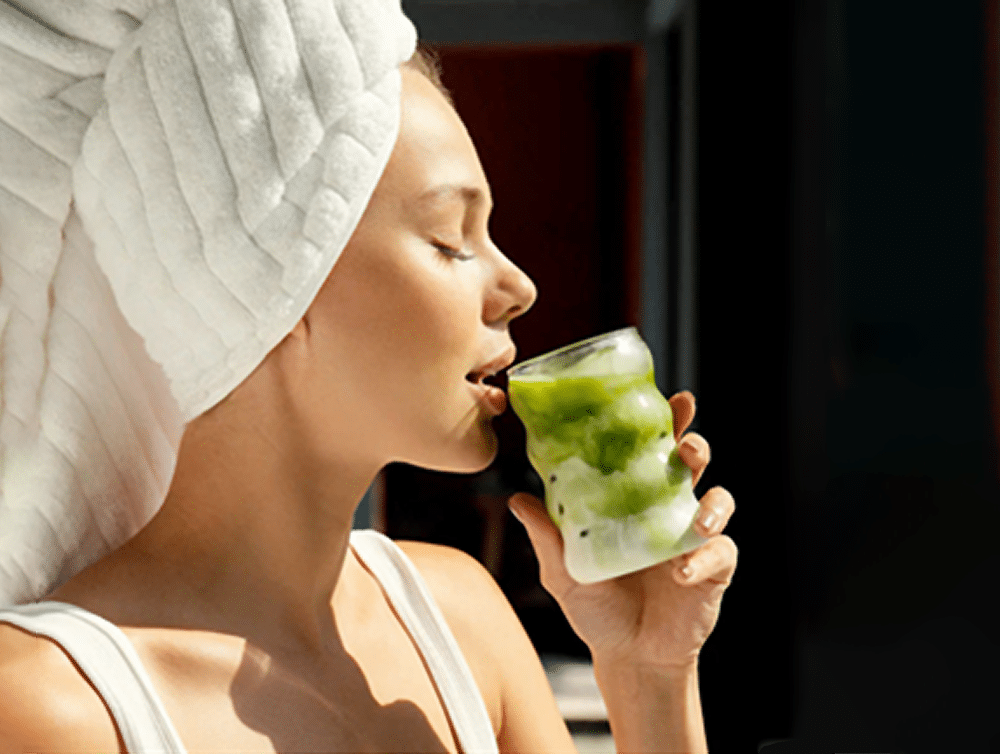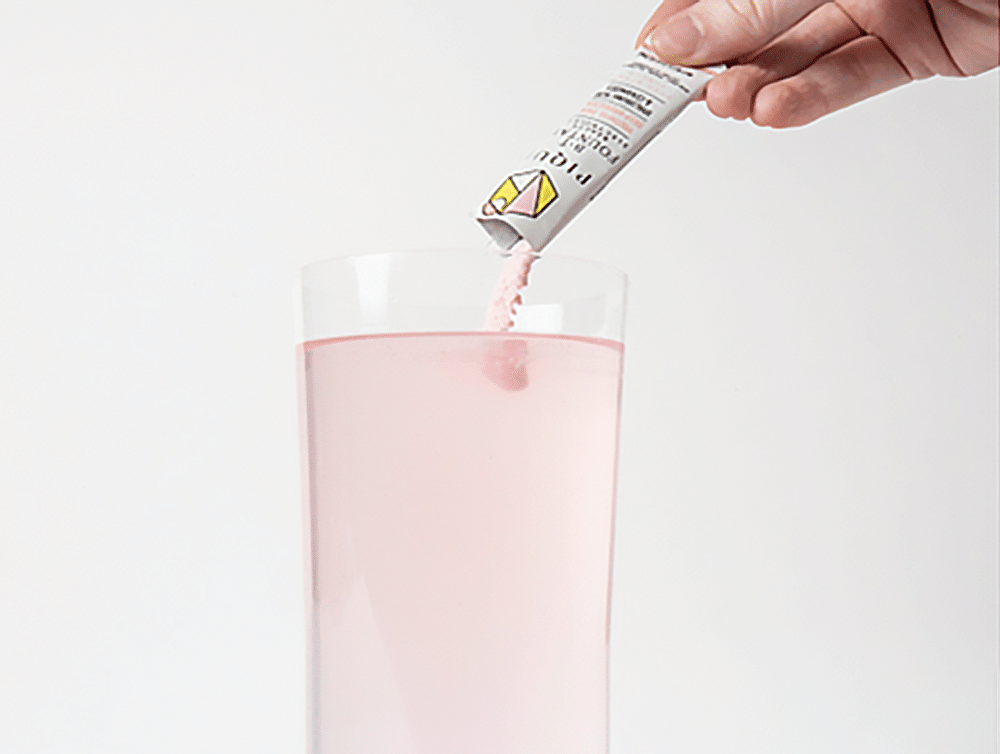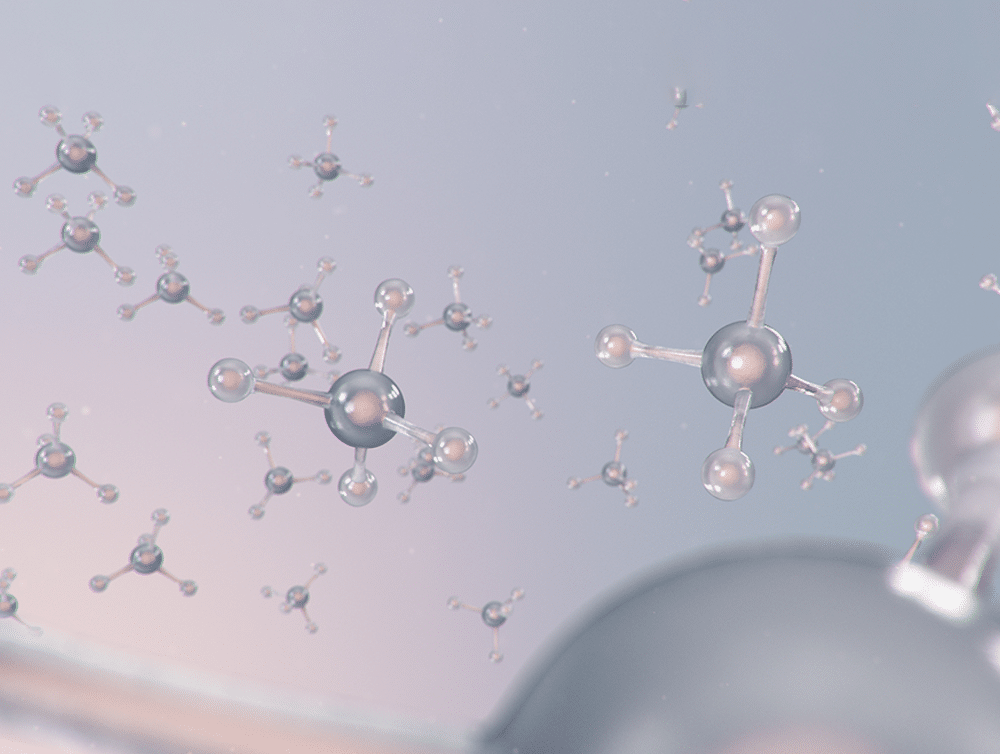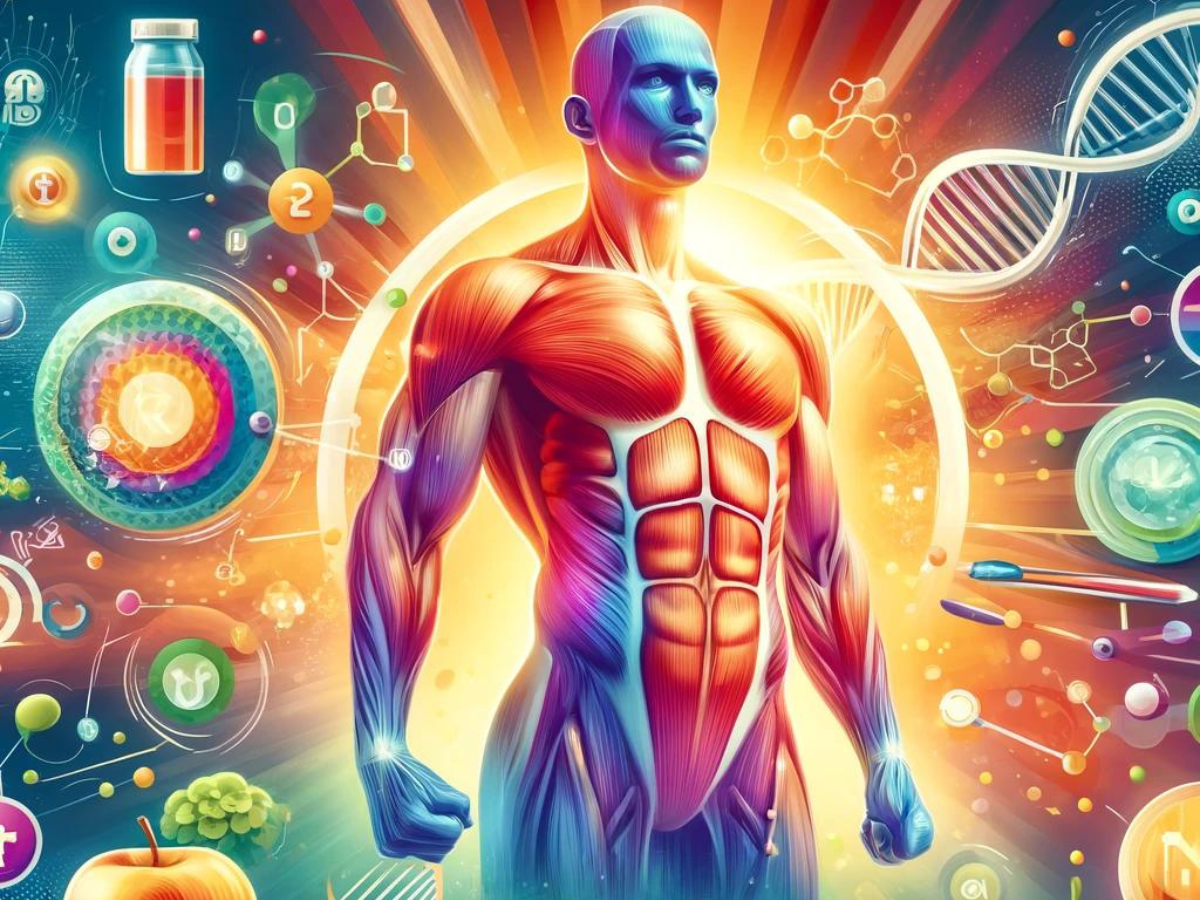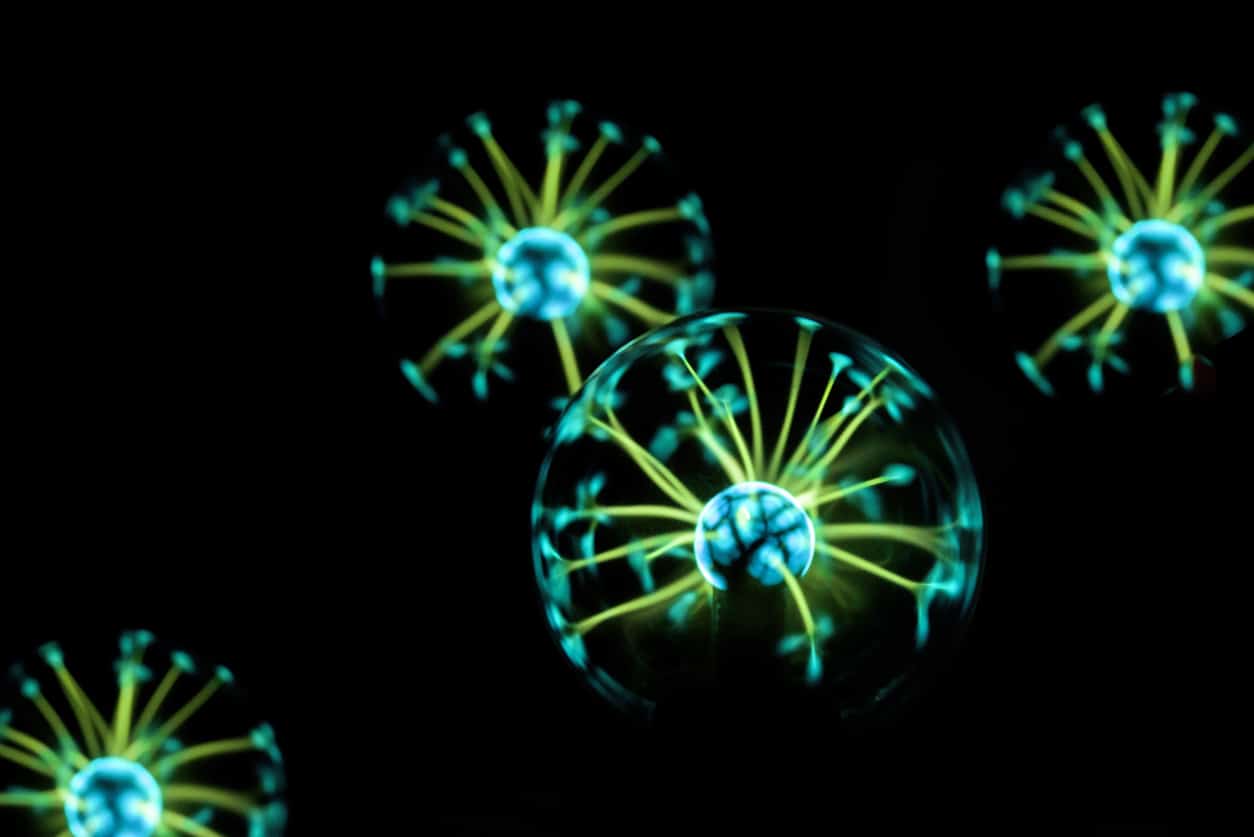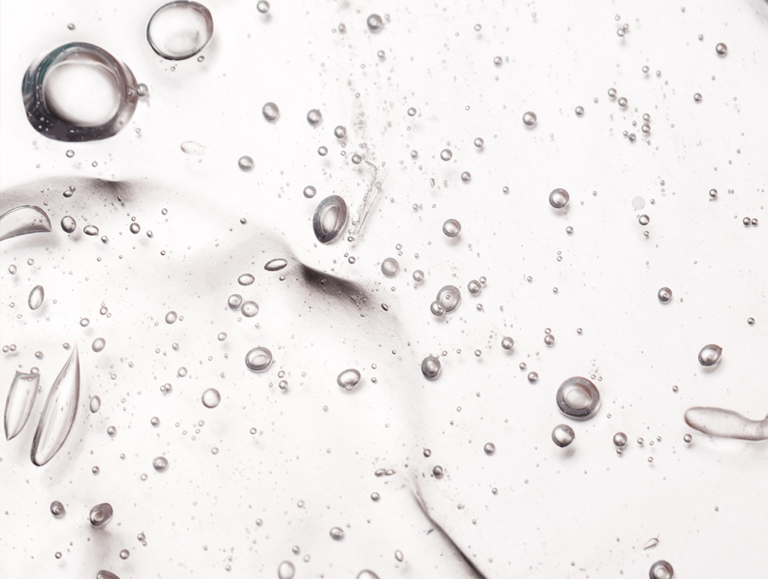
Your skin requires nourishment just like any other organ in your body. You wouldn’t try to rub serums on your liver to enhance its detox capacity, would you?
Sure – moisturizers, serums, and retinoids provide temporary improvements to your skin, but they often only address external issues without tackling the underlying causes of skin problems.
For example, when you get a sunburn, you may see redness on the surface of your skin – but do you know what’s happening below the surface? UV rays from the sun can directly damage your skin’s extracellular matrix, causing it to weaken and deteriorate. Over time, this leaves your skin looking saggy, lethargy, and, to put it bluntly – old[1][2].
And UV rays aren’t the only culprit wearing away at your skin; environmental toxins, poor diet, and even emotional stress can slowly deplete your skin from the inside out, robbing it of the vital nutrients it requires to keep you looking young and healthy[3][4][5].
So you can go ahead and rub as many serums and creams on your skin as you like, but if the layers of your skin beneath the surface are damaged, it’s going to take a deeper approach.
That’s why taking the right supplements that focus on internal factors is much more powerful for skin health than even the most expensive cosmetics out there. Targeted nutrients get to the root cause of dry skin, wrinkles, discoloration, and any other less-than-glamorous skin condition that may present itself on your face.
Whether you’re focused on reducing fine lines and wrinkles, improving dryness, or increasing firmness, there are powerful nutrients that can help. Let’s take a look at a handful of my favorites.
Nutrients That Nourish Your Skin From The Inside-Out
Protein
If you’ve noticed sagging skin and reduced elasticity, you may not be eating enough protein.
Your skin surface is composed of protein-rich cells which create integrity and firmness, allowing your skin to act as a barrier to the outside world. Furthermore, your skin relies heavily on amino acids to form the proteins that make up your extracellular matrix (ECM).
In fact, nearly 75% of the weight of your dermis (inner layer of skin including your ECM) is composed of collagen, a protein that provides structural support and elasticity in your skin[6].
Antioxidants
How exactly do sun exposure and environmental toxins damage your skin? Two words; oxidation and inflammation. Although several complex processes occur when your skin undergoes environmental insult, they all boil down to excessive inflammation and a surge of free radical production.
This is why one of the most powerful things you can do to enhance skin health is to ensure you’re getting enough antioxidants in your diet.
Some of the best sources of antioxidants include dark berries like blueberries, blackberries, and strawberries, along with nutrient-rich plants like green tea.
In fact, Matcha green tea is one of my favorite sources of antioxidants because it contains both EGCG and chlorophyll. Studies show that EGCG may have anti-aging properties, particularly regarding skin care, as this compound helps to firm and brighten the skin, potentially reducing the appearance of wrinkles from the inside out[7][8].
Meanwhile, chlorophyll supports skin clarity and may help to combat the effects of environmental toxins on the skin[9].
Electrolytes and Minerals
Proper hydration is essential for maintaining the skin’s natural barrier function, protecting against environmental damage, and promoting a smooth and radiant complexion[10]. Along with drinking enough water (roughly six to eight glasses per day), electrolytes and minerals play a vital role in maintaining the body’s hydration levels. When your skin is well-hydrated at the cellular level, it appears more radiant and glowing on the surface[11].
Hyaluronic Acid
Hyaluronic acid (HA) is a compound found throughout your body, partially in your skin, joints, and eyes, that helps to keep things hydrated and lubricated.
HA is particularly well-known for its ability to retain moisture in your skin, helping to keep the skin hydrated and preventing excessive dryness[12]. This can help your skin to appear more supple and firm[13].
While you can find hyaluronic acid in some food sources, supplementing is the best way to get a significant dose.
Ceramides
You can think of ceramides as the glue that holds your skin together. These lipids are naturally found in your skin and help to strengthen your skin barrier, improving overall skin health and resilience[14].
Similarly to HA, while you can find ceramides in some food sources if you really want to boost your levels, it’s best to go with a supplement.
A Simple Glowing Skin Solution
Getting all of these skin-loving nutrients into your diet is actually a lot easier than you might think.
First, if you haven’t assessed the protein content of your diet in a while, ensure you’re getting enough of this macro to lay a good foundation for skin health.
And second, you may need to take a look at your diet. Are you getting a variety of fruits and plant foods with deep, antioxidant-rich colors?
For my hit of antioxidants in the morning, I love a good matcha latte. As mentioned, matcha is rich in the compound EGCG and contains chlorophyll to combat some of those environmental toxins we deal with daily.
As for electrolytes, hyaluronic acid, and ceramides, you’ll get the most band for your buck if you take these as supplements – but if you’re looking for a simple, delicious solution, I recommend Pique Life’s Radiant Skin Duo.
This Duo is a combination of Pique’s two best-selling products: Sun Goddess Matcha and B·T Fountain Beauty Electrolyte. While the matcha provides antioxidants, the electrolytes come with a nice dose of hyaluronic acid and ceramides.
The combination of Sun Goddess Matcha and B·T Fountain provides a comprehensive approach to skin health, addressing internal and external factors. By nourishing the skin from within, these supplements help support deep cellular hydration and boost overall health.
This company is also all about quality – which is crucial if you actually want to see results.
For example, Pique’s Sun Goddess Matcha is 100% organic ceremonial grade and has undergone a quadruple toxin screening process to ensure you’re getting the purest matcha possible.
And as a special offer, Pique Life is providing a complimentary Starter Kit when you subscribe to the Radiant Skin Duo. The Starter Kit includes a frother and beaker, making it that much easier to whip us some delicious drinks.
Takeaway
There’s nothing wrong with a good skincare cream, but if you want to get to the root of skin health, it’s an inside job.
A well-rounded diet full of high-quality foods can make a significant difference in skin health, but if you want to see some 180 results – you have to include the heavy hitters like hyaluronic acid, and ceramides.
References
- Charoenchon, Nisamanee, et al. “Ultraviolet radiation?induced degradation of dermal extracellular matrix and protection by green tea catechins: a randomized controlled trial.” Clinical and Experimental Dermatology 47.7 (2022): 1314-1323.
- Watson, Rachel EB, et al. “Damage to skin extracellular matrix induced by UV exposure.” Antioxidants & redox signaling 21.7 (2014): 1063-1077.
- Parrado, Concepcion, et al. “Environmental stressors on skin aging. Mechanistic insights.” Frontiers in pharmacology 10 (2019): 759.
- Saif, Ghada A. Bin, et al. “Association of psychological stress with skin symptoms among medical students.” Saudi medical journal 39.1 (2018): 59.
- Evers, A. W. M., and S. van Beugen. “How stress affects the skin: from designs to mechanisms.” The British Journal of Dermatology 185.1 (2021): 12.
- https://lpi.oregonstate.edu/mic/health-disease/skin-health
- Chaikul, Puxvadee, et al. “Anti-skin aging activities of green tea (Camelliasinensis (L) Kuntze) in B16F10 melanoma cells and human skin fibroblasts.” European Journal of Integrative Medicine 40 (2020): 101212.
- Kim, Eunji, et al. “Skin protective effect of epigallocatechin gallate.” International journal of molecular sciences 19.1 (2018): 173.
- Cho, Soyun. “The role of functional foods in cutaneous anti-aging.” Journal of lifestyle medicine 4.1 (2014): 8.
- Liska, DeAnn, et al. “Narrative review of hydration and selected health outcomes in the general population.” Nutrients 11.1 (2019): 70.
- Vollmer, David L., Virginia A. West, and Edwin D. Lephart. “Enhancing skin health: By oral administration of natural compounds and minerals with implications to the dermal microbiome.” International journal of molecular sciences 19.10 (2018): 3059.
- Papakonstantinou, Eleni, Michael Roth, and George Karakiulakis. “Hyaluronic acid: A key molecule in skin aging.” Dermato-endocrinology 4.3 (2012): 253-258.
- Vollmer, David L., Virginia A. West, and Edwin D. Lephart. “Enhancing skin health: By oral administration of natural compounds and minerals with implications to the dermal microbiome.” International journal of molecular sciences 19.10 (2018): 3059.
- Li, Qingyang, et al. “The role of ceramides in skin homeostasis and inflammatory skin diseases.” Journal of dermatological science 97.1 (2020): 2-8.
